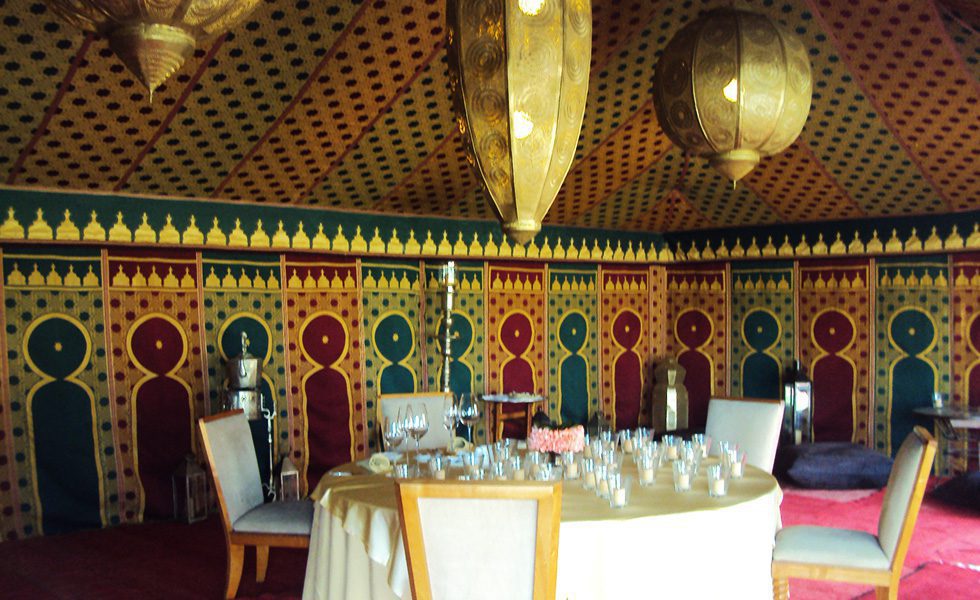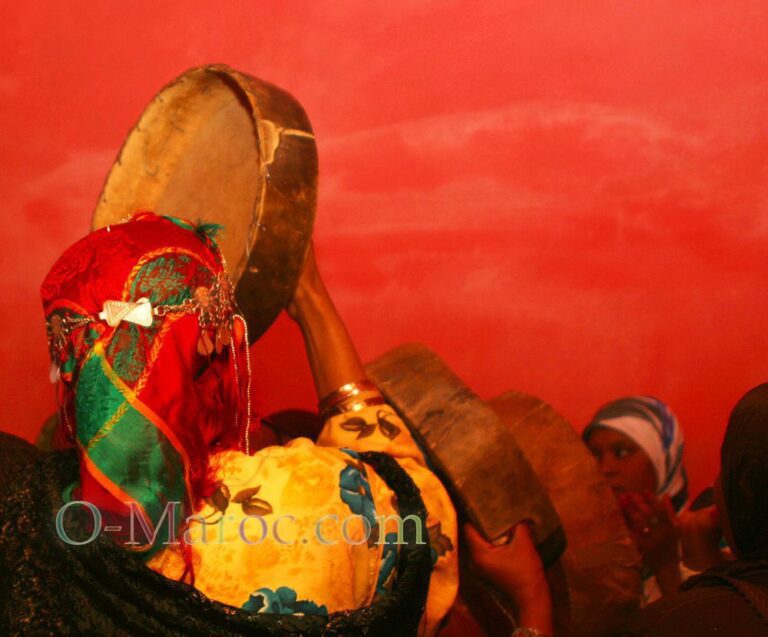If there is one area where the prevailing machismo of Moroccan Muslim society (in fact I only know this one) comes to the fore, it is at parties.
In a traditional family, women and men are separated. So I spend long days bored, far from my husband, who doesn’t have much fun either, but he enjoys it to the full.

The barrier between the two worlds is watertight. Children cross it without too much trouble, but for adults, it would be as inappropriate for a man to be in the women’s room as it would be for him to be in the girls’ dormitory of a Catholic boarding school. And vice versa, a woman, even if very properly veiled, will not go into the men’s room.
(Except to serve them!)
The only points of contact are the entrance, with the reception of the guests, the backstage, and especially the kitchen, where those who bring the food to the men must meet those who have prepared it!
Separate, yes. But less well treated? I have not seen a party where women are welcomed in rooms as large and as well decorated as those of the men, even though the mechanical effect of polygamy and of small children accompanying their mothers means that there are more of us.
At parties, we are always served after the men. It is as if our stomachs – especially those of breastfeeding women – are more resistant to hunger than those of men. And sometimes we are not served as well. It is difficult to make a verbal comparison with my husband, who always thinks everything is good, but several times I have had the distinct impression that our meat is less plentiful, or our fruit less ripe. Or is it simply that we waited one or two hours longer than the gentlemen?
The pilgrimage return celebration for Ammi M’Bark was a very good example.
We met him at the airport at about six in the morning. Well, we started waiting for him at about six in the morning. We left at nine o’clock, we must have arrived at his house at about noon. Any normal person would not be sufficiently nourished by the miserable coffee and dry croissant we had eaten at the airport. So we were starving.
The wait in the small women’s lounge lasted over three hours, during which time I saw the the teapot and the cupcakes, and the tray of small glasses of Zem Zem water pass by twice. Miraculous as it is, it contains zero calories! From the door of our living room, on the ground floor, furnished with couch mattresses (sponges, as we say here) placed on the floor, and an old TV whose cathode ray tube strangely coloured the film brought back from Mecca, we could see the dishes that were going to feed the men passing by.
At about three o’clock, we were taken out of our living room and into the caidal tent. There, between two episodes of music, we waited until ten o’clock to be served. The caterer was fed up, he wanted to speed up the movement, so I felt like I was doing the last service of a Flunch…

Finally, my husband and I left at about 8pm. The women had finished lunch, the men’s dinner was being prepared. At this rate, the women won’t have dinner until midnight, one o’clock in the morning… when they do have dinner, because at the end of the evening, their husbands, full and with a long drive ahead of them, will probably want to go home without waiting, and they will take a sandwich of bread filled with meat, and some fruit, for the road.
Separated and unequal… separated and inferior in everything, in education, in parties, in the mosque.
 A typo or syntax error? You can select the text and hit Ctrl+Enter to send us a message. Thank you! If this post interested you, maybe you can also leave a comment. We'd love to exchange with you !
A typo or syntax error? You can select the text and hit Ctrl+Enter to send us a message. Thank you! If this post interested you, maybe you can also leave a comment. We'd love to exchange with you !




